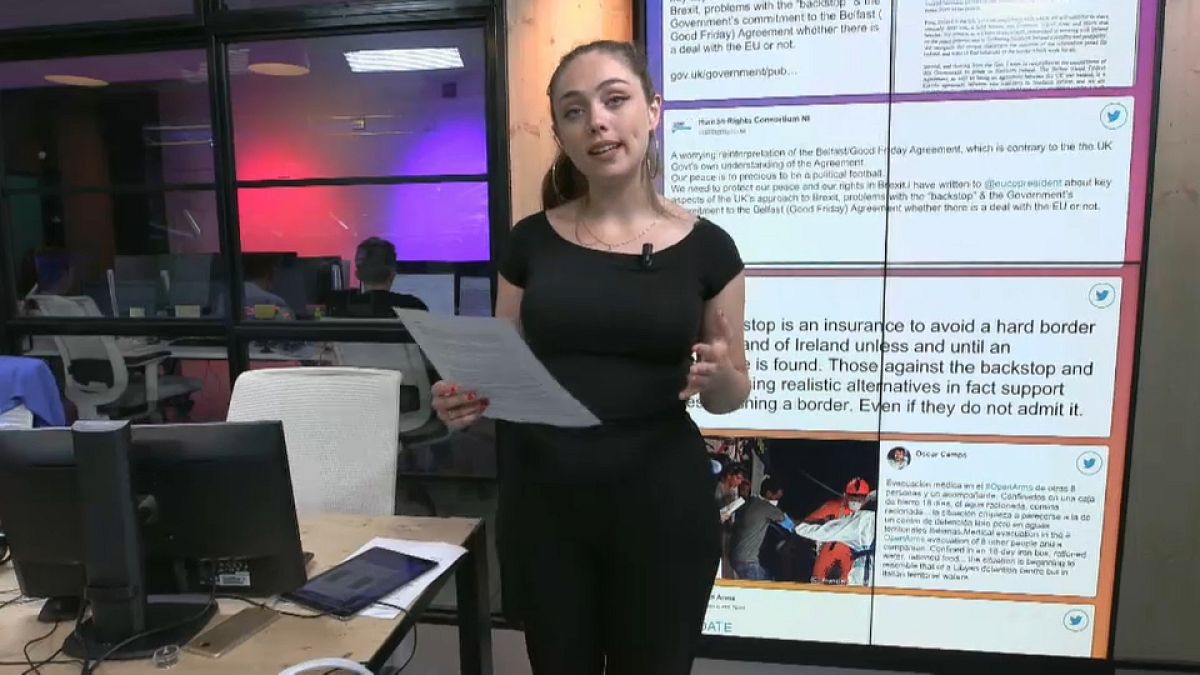In light of Boris Johnson's proposal to ditch the Irish backstop, we’re taking a look at the Good Friday Agreement and how it could be affected.
The Good Friday Agreement and UK Prime Minister Boris Johnson's commitment to it have become the focus of Brexit discourse. In light of Johnson's proposed ditching of the backstop, we’re taking a look at the Good Friday Agreement and how it could be affected by Brexit.
The Good Friday Agreement, also known as the Belfast Agreement, was a deal made on how Northern Ireland should be governed. It is more widely celebrated for effectively ending the 30-year sectarian conflict known as The Troubles.
The agreement was made on April 10, 1998, and addressed these key issues among others:
Devolution
Power was transferred from Westminster to the Northern Ireland Assembly and Executive Committee. This gave these institutions the power to make laws about some issues of internal governance.
Power sharing
Catholic nationalists felt excluded from power by successive governments dominated by unionists. Catholics have historically been a minority in Northern Ireland and voting was governed by a majority rules policy up until the 1998 agreement. It was bolstered by gerrymandering that left even nationalist-dominated areas such as Derry/Londonderry ruled by unionists.
Power-sharing meant that there would be equal power in the state's top jobs by law. If a unionist First Minister was in power, there must be a nationalist deputy. This means that any proposed change in the law must be agreed upon by both parties. This point is proving thorny in light of the Brexit referendum, as nationalists staunchly oppose leaving the EU, while unionists are more polarised.
Decommission of arms and demilitarisation
As part of the peace process, both sides were encouraged to decommission paramilitary weapons.
The British army had been in NI since August 1969. The agreement enabled the withdrawal of forces from the state and the end of military checkpoints along the border, which had been frequent targets of attacks. The spectre of Brexit has seen a resurgence of unrest. On Monday, a device exploded near Wattle Bridge, Co. Fermanagh, an area close to the invisible border.
Police believe the attack was a deliberate attempt to kill police officers.
Border
The Good Friday Agreement says very little about the issue of the border. Because of the Common Travel Area between the UK and Ireland, and both countries’ membership of the EU customs union, the demilitarisation of the border resulted in its virtual dissolution. What exists now is an open border between the two regions, with an estimated 105 million crossings every year.
Historically, there have never been customs checkpoints on the border between Ireland and Northern Ireland. Many who live in towns along the border say they would be completely unviable, as residents currently cross the border to attend school, do their grocery shopping and go about their daily activities without even realising they have crossed the border.
The Brexit backstop
Fundamentally, the backstop is an insurance policy guaranteeing that no hard border will be introduced between Ireland and Northern Ireland.
Johnson is trying to reopen backstop negotiations, believing that it keeps the UK trapped in the EU's single market. Yesterday, he tweeted an open letter to EU Council President Donald Tusk saying the Good Friday Agreement does not depend on any particular customs regime. Is he right?
It depends on which aspect of the Good Friday Agreement he is referring to.
Firstly, the agreement was created with the assumption of EU membership in both countries. As a result, issues of diverging trade practices simply were not considered.
Johnson is right to say that removing the backstop would not contradict the terms of the Good Friday Agreement. A fully open border between Ireland and the UK is not explicitly guaranteed by the agreement. Rather, demilitarisation led to an open border by default.
On the other hand, the proposed ditching of the backstop is at odds with how politics has worked in NI since the agreement. Under the power-sharing clause, both unionist and nationalist ruling parties hold equal sway. By suggesting the backstop should be ditched even in the face of nationalist outcry, Johnson is ignoring how the Northern Irish state functions.
Human rights organisations in Northern Ireland have expressed concern over Johnson’s letter, saying that his interpretation is in fact contrary to the UK government’s own understanding of the Good Friday Agreement.
The EU has been firmly against reopening backstop talks. Tusk responded to Johnson’s letter on Tuesday, saying that arguing against the backstop is a sign of support for re-establishment of a hard border.

